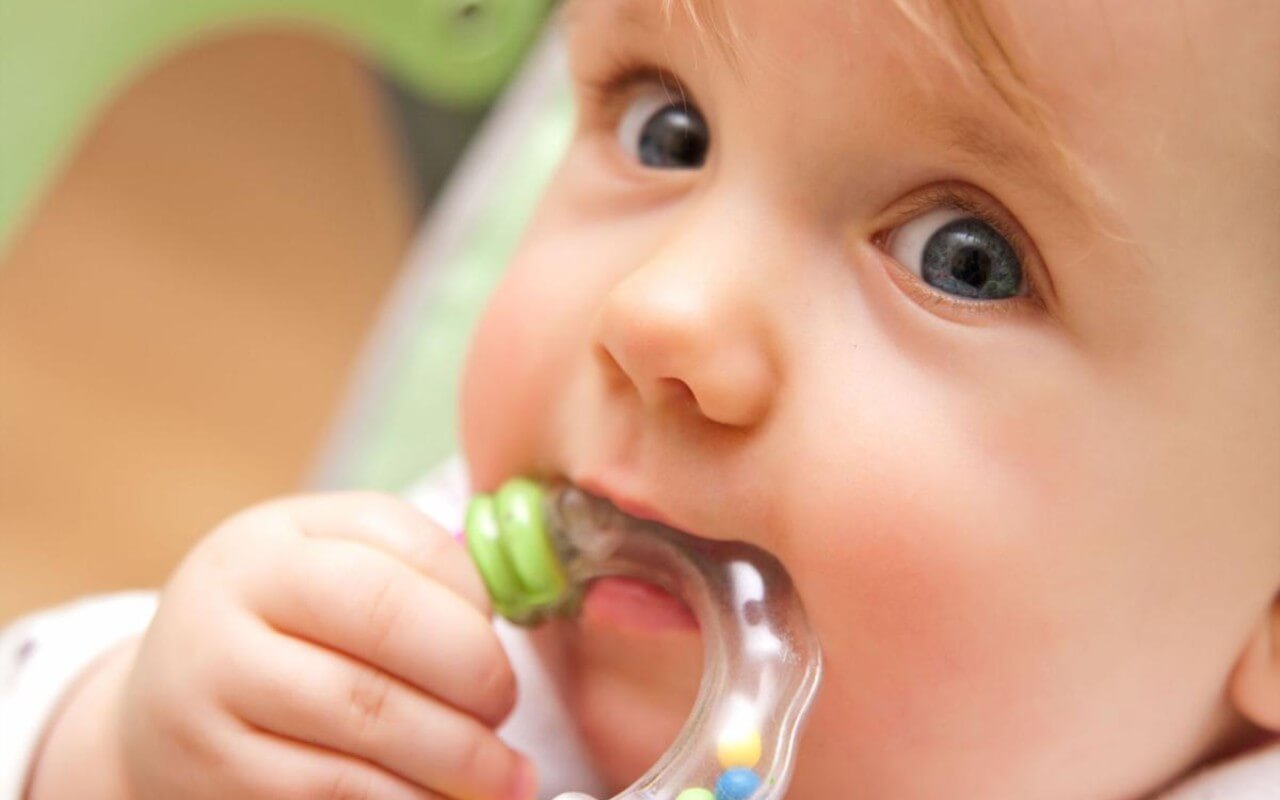One of the important milestones in your child’s life is the appearance of the first tooth. However, baby teething can be a frightening and uneasy time for parents. Often, the child can become cranky or irritable as he or she experiences a tooth eruption. Here are some insights on what to expect and how to keep your little one comfortable.
What is teething?
Your child is born with all 20 primary teeth below the gum line. Teething is the process wherein these teeth erupt through the gums in the mouth.
When does teething begin?
Generally, the time for teething begins at the age of 4 to 7 months, although this duration can vary from 3 to 12 months depending on the infant. Every child’s timing for teething is different, so don’t be alarmed if your child’s teeth are a little early or late! Children typically have their entire collection of baby teeth in place by age 3.
What are the signs of teething?
Symptoms of teething differ from child to child. Some babies may have no discomfort, while others may have pain and tenderness that lasts for a few weeks. Classical signs and symptoms of teething include irritability, restlessness, and crankiness, swollen gum tissue with or without a noticeable lump, excessive drooling, slight temperature rise without fever, urge to chew on objects, inability to sleep during regular nap time, etc.
When should you be concerned?
One of the most common myths among parents is that teething is always accompanied by fever, diarrhea, and rash. If your child has any of these signs its best to talk to your pediatrician or pediatric dentist.
How can you comfort your baby when teething?
Gently rubbing your child’s gums with a clean finger or a moist gauze pad may be very soothing. A clean teether for your child to chew on can also be useful. The pressure will ease the discomfort of your infant. If your baby is extremely cranky, consult your pediatric dentist for some pain relief medications.
Teething is a vital event in the growth of your child, but it’s not always the simplest. You certainly want to do whatever you can as a parent to ease the pain of your infant. Knowing how to deal with this phase can alleviate the discomfort for you as well as your child.

























